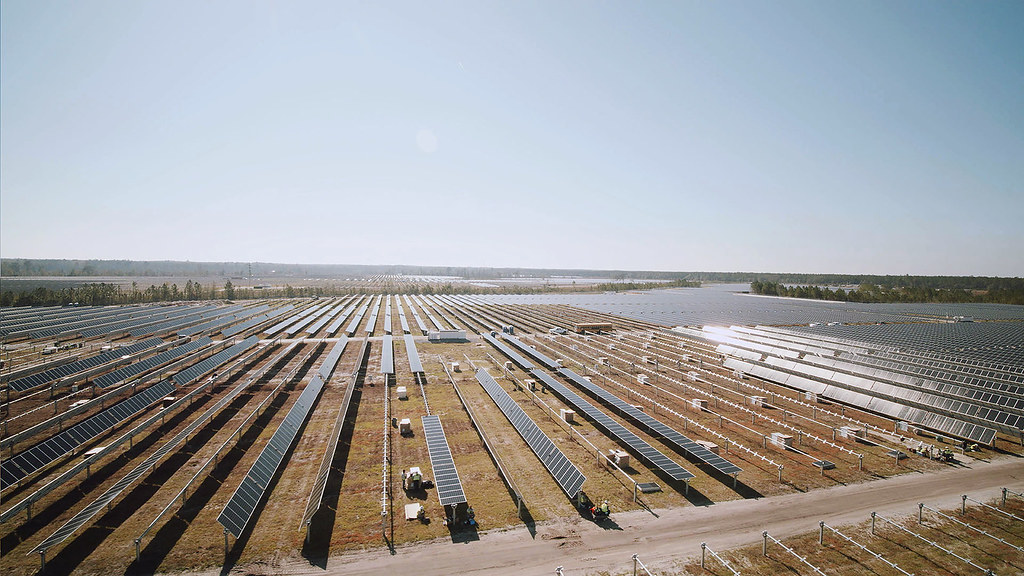Solar Panels: Harnessing the Power of the Sun for a Sustainable Future
18.12.23
vietnamcolumbus
Solar panels have emerged as a cutting-edge solution in the pursuit of sustainable and renewable energy sources. With the ongoing global shift towards eco-friendly alternatives, the significance of solar panels in mitigating environmental concerns and meeting energy demands has become increasingly apparent. These photovoltaic marvels not only offer an effective method to generate electricity but in addition contribute significantly to reducing carbon footprints and fostering energy independence.

Introduction to Solar Panels
In the contemporary scenario, the integration of solar panels has revolutionized the vitality sector, ushering in a new era of clean energy utilization. Because the demand for eco-friendly power sources intensifies, the prominence of solar panels continues to rise. Understanding the intricate mechanisms and the underlying science behind solar panels is vital to comprehend their significance in the sustainable energy landscape.
How Solar Panels Work
Photovoltaic Process
Solar panels function through the photovoltaic process, where sunlight is converted into electricity. The photovoltaic cells, comprising semiconductors like silicon, facilitate the conversion of solar energy into electrical energy through the photovoltaic effect. This process forms the building blocks of solar panels ,enabling the harnessing of the sun’s energy to generate power.
Types of Solar Panels
Diverse forms of solar panels, such as for instance monocrystalline, polycrystalline, and thin-film panels, appeal to varying energy requirements and environmental conditions. Each kind offers unique benefits and efficiencies, making solar panels adaptable to a wide selection of settings and applications.
Advantages of Solar Panels
Solar panels bring forth a range of benefits, making them a compelling choice for sustainable energy solutions. Their notable advantages include reduced electricity costs, minimal environmental impact, and a virtually unlimited source of energy, providing an effective alternative to fossil fuels and conventional energy sources.
Disadvantages of Solar Panels
However, it is important to acknowledge the limitations associated with solar panels. Challenges such as for instance initial high costs, intermittency, and dependency on weather conditions pose certain constraints on their widespread adoption, requiring comprehensive strategies to address these shortcomings effectively.
Environmental Impact of Solar Panels
The environmental impact of solar panels remains a vital aspect to consider. By harnessing solar energy, these panels significantly reduce greenhouse gas emissions, air pollution, and reliance on non-renewable energy sources, making them a vital component in the combat climate change and environmental degradation.

Solar Panel Installation Process
The installing solar panels demands a systematic approach to ensure optimal efficiency and functionality. From site assessment and system design to mounting and wiring, the installation process necessitates precision and expertise to guarantee seamless integration and long-term performance.
Cost Analysis and Financial Benefits
While the initial investment in solar panels might seem substantial, the long-term financial benefits outweigh the costs. Factors such as for instance energy savings, tax incentives, and rebates contribute to the general financial viability, making solar panels a lucrative and sustainable investment in the long run.
Maintenance and Longevity of Solar Panels
Ensuring the longevity and efficiency of solar panels requires regular maintenance and care. Routine inspections, cleaning, and monitoring of performance are vital to increase their lifespan and sustain optimal energy production, thereby ensuring a regular and reliable power supply.
Innovations in Solar Panel Technology
Continuous advancements in solar panel technology have resulted in the development of better and cost-effective solutions. Innovations like bifacial solar cells, solar paint, and perovskite solar cells demonstrate the ongoing commitment to enhancing solar panel efficiency and accessibility, driving the widespread adoption of this renewable energy source.
Solar Panels in Residential Areas
The integration of solar panels in residential areas has gained significant momentum, with homeowners increasingly recognizing the value of sustainable energy solutions. From rooftop installations to solar-powered appliances, the residential sector plays a pivotal role in promoting clean energy practices and reducing dependence on traditional power sources.
Solar Panels in Commercial and Industrial Sectors
The commercial and industrial sectors also have embraced solar panels as a means to meet their energy demands sustainably. Large-scale solar projects and solar farms contribute to the establishment of environmentally conscious business practices, resulting in a substantial decrease in the carbon footprint and operational costs for businesses.
Global Impact of Solar Energy
Solar energy’s global impact extends far beyond individual regions, with its adoption adding to a more sustainable and resilient energy infrastructure worldwide. The growing reliance on solar energy has got the potential to revolutionize the global energy landscape, fostering energy independence and reducing the detrimental impact of traditional energy sources on the environment.
Government Incentives and Policies Supporting Solar Panels
Governments worldwide have implemented various incentives and policies to market the adoption of solar panels. Subsidies, tax credits, and feed-in tariffs incentivize individuals and businesses to invest in solar energy, adding to the accelerated growth of the solar industry and the transition towards a more sustainable energy ecosystem.
Future Prospects of Solar Energy
The future of solar energy appears promising, with projections indicating a continuous upward trajectory in solar panel installations and advancements. With the ongoing concentrate on research and development, along with increasing public awareness of the advantages of solar energy, the near future holds the promise of a more sustainable and renewable energy landscape.
Conclusion
In summary, solar panels represent a pivotal step towards a more sustainable and eco-friendly energy future. Their capacity to harness the abundant power of the sun, in conjunction with advancements in technology and supportive government policies, positions solar panels as a crucial catalyst in the global transition towards clean and renewable energy sources. Embracing solar energy not only ensures a reduced carbon footprint but in addition paves the way in which for a more sustainable and resilient energy infrastructure, fostering a better and greener future for generations to come.
Featured news
Contact Info
Please fill in the information below to receive complete solar energy construction consultation.







